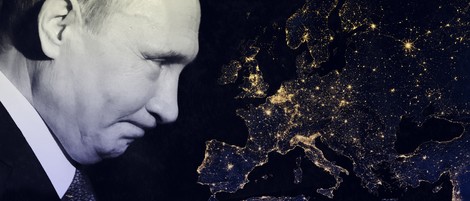Your podcast discovery platform
Curious minds select the most fascinating podcasts from around the world. Discover hand-piqd audio recommendations on your favorite topics.

piqer for: Climate and Environment Global finds Globalization and politics
I'm a freelance journalist, currently based in Madrid. I used to be a News Producer at CNBC in London before, but I thought a little bit more sun might do me good. Now I write for several news organizations, covering a range of topics, from Spanish politics and human rights for Deutsche Welle to climate change for La Marea.
A Symphony Of Assumptions (And How They Could Be The End Of Europe As We Know It)
After reading The Plot Against Europe, I wasn't sure if I should recommend it here. We had a very interesting internal discussion, and we finally decided it was a good idea to open the debate, which I hope will follow in the comments section.
Let's start by saying that this is a piece of fiction. It's the year 2022. The European Union and NATO have collapsed and Russia has invaded Estonia. Now comes the tale of how all this came to happen, going step by step and region by region, covering most of Europe.
This is a very original way of going over recent events in Europe. It's compelling, and tackles quite a bit of complexity in a 20-minute read. For readers with a bit of knowledge of what's going on in the continent, The Plot Against Europe can be an interesting recap.
But
The problem is that most of Griffiths' assumptions are, to say the least, far-fetched. He builds a story of evil conspirators working together like clockwork to punish even the tiniest mistake. A myriad of extremist groups (for Griffiths, that's everyone not strictly neoliberal, from Jobbik to Die Linke and anti-fracking groups) ready to strike. At the helm of that conspiracy is (of course) Vladimir Putin, who the author expects to win every move in the next five years.
All is realpolitik: the population is powerless, or rather, doesn't exist at all. And the author raises further assumptions on these assumptions to build a nightmarish house of cards.
Still, it's interesting to take a look at the fears and worldview of neoliberalism as an ideology. These guys must feel really threatened. And I'd like to look at the bright side: if you, like me, lean to the left, this can really burst your bubble. I had mine obliterated. I even felt insulted at times. Feels ok now.
What's your take?
Stay up to date – with a newsletter from your channel on Globalization and politics.

nice to learn how 'think tanks' work, grácias por este piq! however, sentences like "Edward Snowden, on whose chest Putin had pinned a Hero of the Russian Federation Prize in 2018, had seen to that" turn me off (parentheses don't really cure the flaw). i'm all for busting bubbles, particularly my own, but not by diving into neoliberal(?) paranoia. read it anyway.